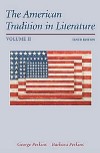Olaudah Equiano, also known as Gustavus Vassa, and by other names assigned to him by various owners, was an African slave from Nigeria. By education, he came to write the first significant and influential slave narrative, conducted business while in service to others, purchased his own freedom, and experienced adventures rich enough to have filled a Holywood screen. Olaudah Equiano arrived in America about the age of 11 and was passed along to several masters. Recognized for his intelligence, several encouraged his education and training for business. Remarkably, after only 10 years of work, he had saved "forty pounds sterling," the purchase price of his freedom, by selling to Quakers goods and merchandise that his owner had allowed him to stow on his ships. Upon receiving of the bag of silver, a startled master remained good to his word and approved papers releasing him as a free man. Armed with a sharp business acumen, Olaudah Equiano continued his business investments, securing his financial stability. He had wide interests, that took him through various, sometimes perilous circumstances. In Canada, he fought in the French and Indian War in the English army of General Wolfe, once found himself ice bound on a merchant ship in the Arctic, witnessed the eruption of Mount Vesuvius, and after the American Revolution, helped organize a vigorous anti-slavery movement. Perhaps his only significant failure was his attempt to facilitate a repatriation of freed Africans back to their homelands, a project that collapsed due to politics and corruption beyond his control. In 1788, from the home of a friend in England, Olaudah Equiano took time to draft the narrative of his life, Equiano's Travels: The Interesting Narrative of the Life of Olaudah Equiano or Gustavus Vassa the African, a work that drew upon years of notes from his journals. In 1788, he married Susan Cullen, an English woman with whom he fathered two daughters. Their marriage was short-lived, however. Susan died in 1795, and Olaudah Equiano himself only two years later. The genre of the slave narrative is populated by more than 6,000 works that continued to appear well into the twentieth century. The remarkable clarity and spirit of Equiano's Travels: The Interesting Narrative of the Life of Olaudah Equiano or Gustavus Vassa the African complements other extensive and widely influential works including Narrative of the Life of Frederick Douglass, and Harriet Jacob's Incidents in the Life of a Slave Girl, both written a century later. All three publications helped promote the American and English abolitionist movements. |



 2003 McGraw-Hill Higher Education
2003 McGraw-Hill Higher Education